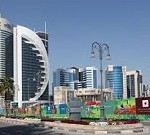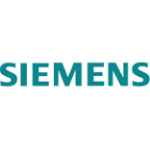Energy Management
Accredited Consulting Service for Mr. Boyanov MSc Accredited Executive Consultant (AEC)
Executive Summary Video
The Appleton Greene Accredited Consultant Service (ACS) for Energy Management is provided by Mr. Boyanov and provides clients with four cost-effective and time-effective professional consultant solutions, enabling clients to engage professional support over a sustainable period of time, while being able to manage consultancy costs within a clearly defined monthly budget. All service contracts are for a fixed period of 12 months and are renewable annually by mutual agreement. Services can be upgraded at any time, subject to individual client requirements and consulting service availability. If you would like to place an order for the Appleton Greene Energy Management service, please click on either the Bronze, Silver, Gold, or Platinum service boxes below in order to access the respective application forms. A detailed information guide for this service is provided below and you can access this guide by scrolling down and clicking on the tabs beneath the service order application forms.
Client Telephone Conference (CTC)
If you have any questions or if you would like to arrange a Client Telephone Conference (CTC) to discuss this particular Unique Consulting Service Proposition (UCSP) in more detail, please CLICK HERE.
Bronze Client Service
Monthly cost: USD $1,000.00
Time limit: 5 hours per month
Contract period: 12 months
SERVICE FEATURES
Bronze service includes:
01. Email support
02. Telephone support
03. Questions & answers
04. Professional advice
05. Communication management
To apply – CLICK HERE

Silver Client Service
Monthly cost: USD $2,000.00
Time limit: 10 hours per month
Contract period: 12 months
SERVICE FEATURES
Bronze service plus
01. Research analysis
02. Management analysis
03. Performance analysis
04. Business process analysis
05. Training analysis
To apply – CLICK HERE
Gold Client Service
Monthly cost: USD $3,000.00
Time limit: 15 hours per month
Contract period: 12 months
SERVICE FEATURES
Bronze/Silver service plus
01. Management interviews
02. Evaluation and assessment
03. Performance improvement
04. Business process improvement
05. Management training
To apply – CLICK HERE
Consultant profile
Mr Boyanov is an approved Executive Consultant at Appleton Greene and he has experience in globalization, management and marketing. He has achieved a Master of Science in Radio Location and Navigation Systems and a Postgraduate in Business Management. He has industry experience within the following sectors: Energy; Construction; Utilities; Consultancy and Oil & Gas. He has had commercial experience within the following countries: Kazakhstan; Iraq; Qatar; Afghanistan and Bulgaria, or more specifically within the following cities: Atyrau; Basra; Doha; Kabul and Sofia. His service skills incorporate: energy management; project development; business development; leadership and risk management.
To request further information about Mr. Boyanov through Appleton Greene, please CLICK HERE.
Further Information
Mr Boyanov’s Energy Management career started in a steel mill, where he managed the power supply and industrial automation, where he gathered insight in rapid response processes. He did self-audit of the facilities, to specify the service’ needs and spares stock. His consultative services supported state and municipalities’ authorities in execution of a national energy saving program, supported by EU – a replacement of the old energy intensive mercury lamps widely used in street lighting, landscape, sports facilities and industrial entities, with sodium lamps, at that time considered as an energy saving solution. He has consulted universities, designers, lighting companies, municipalities and state authorities, for the new technology. He undertook other projects, with replacement of the old indoor lighting with electromagnetic ballasts, with electronic installations, partially financed by EU. He participated in several street lighting performance contracting projects and various commercial ones – shopping mall, stadiums, tunnels, hotels. His development continued in projects with national or municipalities’ importance, in connection with the European cohesion financing program for new construction and rehabilitation of the national infrastructure, as his country became a member of EU. He visited hundreds local and state authorities, in order to promote various development programs – road technical infrastructure, water treatment, city district heating, etc. he had program supporting responsibilities, including technical, financial and partly legal ones. Some of the projects were: urban and interurban– toll, speed enforcement, traffic control, parking, street lighting performance contracting projects, tunnels; water – municipalities’ network; national gas distribution network – control system; district heating. He was involved in private projects as well: airports –building management, airfield lighting; industrial projects – paper, metal technological processes improvements with automation solutions; national gas distribution network, control system. He was involved in wind generation projects. Besides his technical responsibilities with design and operation, he managed the Environmental impact assessment process. At that time there was a peak in applications for construction permissions and the public interest was very much excited on keeping the environment safe from wind farms. He was involved also, as a member of National Wind Association, with the growing issue of feed-in tariff, rather high at that time, destabilizing nature of wind generation to national grid and in first steps of smart grids in the country. In his next assignments he supported jet fuel supply to armies in Afghanistan through Central Asia and to civil airports in Afghanistan and Central Asia. He did research on refineries in Russia and Central Asia – availability, quality, delivery process; and tank farms audits – procedures; metering; protection – fire, terrorism, criminality; power supply, control; documentations. He prepared Standard operating procedures. US codes were applied. In his next assignment he provided consulting services for a construction of residential complex in Central Asia. The scope consisted of installation of Building Management system and integration of security, fire protection, data management, entertainment, telecommunication, HVAC, water supply, electricity and lighting. Specification of the requirements for facility services was also his task. US, UK, EU and Russian codes were applied.
Mr Boyanov is currently involved in projects in Arabian Gulf. A program in Iraq – Basra Governorate Program Management, capital projects of infrastructure planning & rehabilitation. The objectives include the new construction and rehabilitation of the existing infrastructure parts: water networks; electrical power transmission and distribution; urban and interurban roads; IT & telecommunication infrastructure; public buildings, shopping malls; gas supply networks. The strategy is to create a new living environment for a region, devastated by a war and poverty. His personal responsibilities included preparation of bids’, related to technical scope of Energy Management; consultancy services to authorities about international standards; tender contractor applicants’ pre-qualification; meetings with the applicants and consulting the decision making process of the state authority. Technical scope of Energy Management included: electrical network – transmission and distribution; electrical supply and machines’ parts of the water and gas projects; electrical facilities’ part of road network; street and landscape lighting; IT and telecommunication networks and data centers; indoor technical facilities of all buildings – fire, security, HVAC, electrical, machines, etc. The norms observed, were American, British and EU ones. In Qatar he is involved in lighting installations to various projects, in relation to the national development program and of 2022 FIFA World cup. He undertakes an investigation of construction market in the country. The construction activities are in all market segments – road and bridges, shopping malls, several stadiums and other sports facilities, high rise office building and towers, landscape, parks and others. The corruption if any is not visible and the quality of the construction is high. He follow the activities of most of the consultants and contractors and he has met some of them. At Inter-company he consults regarding the necessary roles, tasks and targets; documentation; software; customer and supplier’ approach. He undertakes price comparisons and evaluation of the suppliers’ products and also does the competition evaluation. He has activities with solar energy feasibility studies in other Gulf countries. Energy Management in this region is a developing topic. As the energy resources are abundant here, the countries enjoyed very profitable business, exporting their oil or gas. As from last year the prices went steeply down, and the exporting countries encountered changed revenues. That fact will obviously affect their national budgets. Strong subsidies of the fuel shall be re-considered, energy efficient measures shall be applied, and the de-carbonization of the national economies becomes very important. Some economies, like Dubai, have already taken great steps, others are still at the beginning of the process. Oil & gas market specialists predict the price downturn will continue, or in the best case will stay flat for long period, for years. Together will this trend, which seems uncontrollable by any institution, more and more countries apply measures for supporting of the renewable generation, that will contribute to the price development. Mr Boyanov envisages that Energy Management will become a very hot topic in Middle East countries, due to the above mentioned facts, and with his knowledge and experience, he expects his business activities in the region will continue to grow.
Executive summary
Energy Management
For many companies in Europe, an imperative reason to implement a form of Energy Management is because they are obliged to do so, due to European regulation, in specifics the Energy Efficiency Directive, which established a set of binding measures. The countries in Central Asia and Middle East are lagging behind on this matter, as most of them still have an abundance of energy resources and they apply fuel subsidy measures. The steep slide of oil prices has placed strong pressure on the budgets of those countries and makes them consider energy efficiency, de-subsidizing the fuel provision and even de-carbonizing their economies, making Energy Management a hot topic. As International codes are valid for the construction, big technologists sell products without obstacles to technological implementation. Young people from the region are studying in Western universities, becoming aware of Western energy domestic markets. On the internet, the information about the topics is available to everybody. Possibly additional promotion is unnecessary and those opportunities make energy efficiency programs acceptable in most of the countries of the region. There are also some threats to such programs –economic, political and cultural. The necessary measure of de-subsidizing the fuel provision to the population would provoke public discontent, as people have enjoyed low prices for a long time. A threat is the cultural difference between Asian and European people, as the difference is stronger in Central Asia, where the Russian influence aggravates the situation. Many European approaches are not acceptable there, as for example, the power of public opinion. Mr. Boyanov has his biggest business experience in Eastern Europe, a region with common recent past with the countries of Central Asia. There are other similarities, as Stan- countries are on the road of economic development and apply similar programs. He speaks Russian, a language that is widely used in those countries and enables him to be well accepted amongst the local communities. He has undertaken investigations in the region relating to the energy market, mining, oil & gas downstream and civil airports. In the Middle East, he has good knowledge of the construction market, the processes and market players, especially in Qatar and Southern Iraq. He has experience with US, UK and EU codes and norms, applicable in the region. He is aware of the processes within many businesses, related to the technical infrastructure of buildings and other entities and the city streets technologies. He has a deep technical expertise, mainly in electrical equipment, and also in gas and water electrical machines. He intends to specialize in Energy Management relating to indoor entities: offices; hotels; shopping malls and also in the solar generation business.
Service Methodology
Planning
In order to implement the Energy Management process, I am going to apply the Standard ISO50001, which is based on the continual improvement cycle plan-do-check-act. The process will be incorporated in daily activities of the organization. The energies as water, air (compressed), oil & gas, electricity, heating & cooling, steam and their demand management require proper data gathering, processing and plan delivery. The existing theoretical frame and benchmark from global industry will show us what exactly data shall be gathered. I propose the research to be done from several perspectives – organizational, technical, chronological, etc. In case of good availability of data: as annual report, production data, organization chart, general policy, assets layout, utilities, procedures, facilities, significant energy users, contracts with energy, raw materials and services suppliers, I will do operational and technical predominantly quantitative analysis and propose monitoring system. If reliable information is missing, I will start with a usage of any available general information. Judgments on the performance can be done based on the information from the significant energy users, or facts as lamps switched-on in day time or water is running constantly in the toilet or air-conditioner is cycling. The hypothesis from those is that the organization lacks energy awareness and its influence on the cost. A collection of similar data, allows grouping and analysis. The analysis can be also qualitative, through surveys among employees or clients. If people say, that it is too hot and they open the windows frequently, the problem is obvious. The interviews can be done at random among the organization or sampling one department only. For analysis I will use regression and correlation approaches, mixing data from both, organizational and technical frames. For example if top Management declares full contribution to the execution of the Energy Management plan, the difference of water consumption in next quarter to be checked as a prove for such contribution. The Energy Management plan will be prepared as a result of gathering, processing and analysis of data and will provide outcomes – baseline, energy performance indicators, objectives, targets, short-term and long-term goals and action plans, for delivering improved energy usage results. Some improvement will be implemented immediately, others require investment decision. The energy usage and procurement policy will be described; the role of top management and energy team will be listed. Energy goals will be supported by metering, to be stipulated which ones. The improvement opportunities could be – new procedures, performance improvement, business process review, operations review, identification and elimination of waste, etc. I will set in the plan also a time frame and milestones, responsibilities and verification of the results and all will be documented. Ethical and security considerations will be done also, as some of the information, would be confidential or secret. The ultimate task of the plan is to make obvious the ways that energy is used, thus to increase cost awareness of the organization, followed by implementation of constant improvements of the energy demand and usage.
Development
There are plenty of technologies in any part of the business; the main barrier for change implementation in any organization are the employees or/and the management. I will propose measures to overcome barriers – resistance to change, lack of technical knowledge; potential savings are not recognizable, poor realization, lack of systematic approach. Those measures will lead to development of the people, improving their competence, basic technical knowledge and skills and energy demand awareness. If necessary, those training will be done under my personal guidance, as they are critical success factors. Another important task is the development of an energy use profile, to demonstrate how energy use is distributed among the company facilities, as well as identify the energy source for each system. Sub-metering can be provided for the systems to further analyse the systems and to identify further reduction opportunities. Breaking down energy consumption data in separate systems allows an approach of targeting improvement activities. Further, including cost in company’ baseline and energy use profile will be easier to recognize the company’ best opportunities for improvement. I will support also the legal frame of the preparation and implementation of the Energy Management process, as per my knowledge of the regions, mentioned in my profile. Local legislation will prevail over international, in case of difference. Another part of the development is the technological one. I will support and personally contact the technology vendors of the products and the system, whose materials and solutions are going to be installed and used in the monitoring system. It is necessary for proper usage, installation, commissioning, guarantee, upgrade and services. Documentation control and communication are important topics for development. In the daily business work all signals, warning or just informational ones, any important change or emergency, must be known, considered and worked out. That requires registering and proper following. Sometimes employees plunged deeply in their daily work; dismiss the signals from energy monitoring system, considering it as a second priority. The mistake is recognized later, when a big repair is necessary or the cost of energy is already higher. That is why the rules of Energy Management System must be integrated in the company rules. My task is to convince the top management of that necessity. It is essential, may be above all other measures and development, to involve deeply the top management by a behavioural change. All technical improvements and investment solutions will not work properly, if there is no full commitment of the top management. I shall convince them, that energy performance improvement leads to business performance improvement and more profit. Their tasks also include creation of the Energy policy, approval of Energy Management plan and changing the company rules accordingly. Top management will appoint a champion of the system – the Energy Manager. I am going to communicate the positive expectations with all departments in the company – financial, purchase, facility management, etc.
Implementation
After the proper data gathering, analysis of the results, creation of Energy Management plan and Energy policy, development of the employees, top management commitment, appointment of Energy Manager and Energy team and others, it is time now for implementation of the process. This is a crucial milestone, my participation is very much necessary and I am going to support the Energy Manager. Many times good intentions and plans are destroyed by improper implementation. It is also a difficult moment, when one has to make the whole organization to work in a different way. All enthusiasm would fade down, when routine operations must be changed. Here is the crucial role of the Energy Manager and his/her team to put all efforts all to be done as planned. In the same time there is a big need of flexibility. This phase could show some drawbacks of the planning that shall be amended properly and immediately. That requires also amendment in the documentation. If something shows that it is wrongly planned, an action shall be taken for amendment of the plan. That is why a cycle plan-do-check-act is a constant improvement cycle, not a one-line-process. My big support and even personal participation is necessary. The implementation needs to be undertaken step by step, in order all variables to be controlled. In case of lack of knowledge of any participant, training shall be organized immediately. The first results shall be communicated to the staff, in order to support the initial enthusiasm and further commitment. Design team, engineers, facility management and technicians will be ready to undertake amendments to the existing equipment, when necessary. Change in procurement can be applied with new tariffs, new specifications, new contracts or new suppliers, but this is not an immediate task and shall be implemented later in the process. This is the time when some quick result action to be taken, for example different set point for air-conditioning, or installation of presence detectors for lighting, or changing all filters in air-handling system. When those actions start giving results, the investment decision shall be put under consideration. Top management shall be kept well aware of each change, development, action as much as possible, in order they materialize their commitment in case of necessity. It is important that first problems are quickly removed, and is also necessary that first good results are quickly communicated. In case, that Energy Management system works properly and fruitfully at the beginning, good results will be communicated also to the market, especially to immediate suppliers and clients, for image support purposes.
Management
I intend to engage top management in order to achieve commitment, in order to ensure that these processes will be implemented and also managed within the daily operation of the company. Their task is to control the project or process once it is approved for implementation, through Energy Manager or with direct involvement, for example with new contracts with energy suppliers. Controlling the process implementation and operation involves investment decision, contractual obligations and the ability to run the schedule and financing the operations. When results from first quick outcome activities are available, the improvements need investment decision shall be put into consideration. I will support this phase with my technical knowledge, providing proposal for optional equipment installation, for example how good is the metering and whether sub-metering devices shall improve data gathering, or installation of SCADA for central controlling of all equipment or new chiller, new lighting system, new diesel generator, etc. Installation will be done, when decision is taken. In the time of the commissioning the technological vendors shall be aware of the importance of this milestone and shall be prepared for urgent services and amendments, if necessary. Although the employees are trained, the smooth work of the system requires some special measures at the beginning. I will make myself responsible, without interfering in the work of top management, to remind, to support and to consolidate their efforts, as this is a crucial factor for the success of the project. I will remind constantly, that the mapped out and implemented plan, shall be followed strictly in management control process. The process shall be monitored and managed on operational level with the technical support of the installed equipment. The results must be constantly documented and compared. Any excessive deviation from normal results must be immediately approached, analysed and repaired. The Energy manager shall compare the performance against baseline and key performance indicators and shall take corrective actions, reporting on time to top management. I will interact with the Energy Manager, in order to create a leadership quality in him/her, as many times the proper controlling of the system will need tailor made decision and quick actions. The Energy team shall be constantly supervised and supported, as each of them will have proper zone of responsibility. In case somebody does not provide exact control in his/her space, the total system will be decreasing its effectiveness. The significant energy user shall get special attention, as any improvement in their performance will make bigger impact of the total organization. The Energy manager will create action plan, based on the phases, steps, milestones or resources of the process. He / she must constantly check the outcome and follow the time frame, consider the resources necessary – people, money, time, technology – whether available and take corrective action, and anticipate any problem. The procedures shall be reviewed constantly for legal compliance. Monitoring system shall be used for data gathering, but it also shall be controlled, evaluated and amended if necessary.
Review
As I proposed implementation of ISO50001, its frame is on the cycle plan-do-check-act schedule. This is a constant improvement process with the involvement of top management, employees, processes, technologies, finances, etc. Each cycle starts and ends with a management review. I believe and will support creation of effective management process, in which the management review must be conducted with consideration of regular topics and with pro activity. At planned intervals, top management shall review the Energy Management system to ensure its continuing suitability, adequacy and effectiveness. Documentation will be organized in the planned way and shall be maintained. The Energy Manager shall prepare him/her-self properly with a checklist – performing of the system, comparison of the results towards baseline, problem areas – technical and organizational, investment proposals, procedures changing proposals and will take care the information provided is on the level that will ensure proper outcomes. I will propose more frequent management reviews at the beginning, for example quarterly, until the system is properly set up and results are positive. The management review provides the Energy manager with the opportunity to demonstrate leadership, or to recognize existing gaps in it, and to shape the strategy with the top management. It is the Energy manager’s responsibility to provide information and proposals which will ensure that top management properly perform their roles and meet their responsibilities. Top management cannot take direct action to the system performance, without being properly informed about the status and necessary amendments. That shows the importance of the review, which is not limited to immediate issues, but shall cover also strategic and investment issues. I will support also, that before a review an audit is conducted, to provide more systematic information. As mentioned several times, if the system is to run smoothly, it is important that top management values the benefits from energy management, makes decisions and authorizes actions. Without the commitment and involvement of the people providing the resources needed for the system, its chances of success are not big. The Energy Manager identifies the system’s needs, takes on board the views of top management, organizes and chairs the meetings, and follows up on the decisions. After the review, the proper action will be taken by the Energy Manager and his/her team. Sometimes the outcomes are the necessity of big changes in the process, or purchase and installation of new equipment, change of energy supplier, establishment of new procedures, etc. Those actions will be implemented initially with changes in the plan, additional training to the people, new equipment installation, etc. As the total process is a cycle, it will lead to a gradual technical, organizational and ultimately a cost improvement. Recognizing individual and collective efforts through awards or other recognition programs also provides opportunities to celebrate and communicate the valuable work being accomplished.
Service Options
Companies can elect whether they just require Appleton Greene for advice and support with the Bronze Client Service, for research and performance analysis with the Silver Client Service, for facilitating departmental workshops with the Gold Client Service, or for complete process planning, development, implementation, management and review, with the Platinum Client Service. Ultimately, there is a service to suit every situation and every budget and clients can elect to either upgrade or downgrade from one service to another as and when required, providing complete flexibility in order to ensure that the right level of support is available over a sustainable period of time, enabling the organization to compensate for any prescriptive or emergent changes relating to: Customer Service; E-business; Finance; Globalization; Human Resources; Information Technology; Legal; Management; Marketing; or Production.
Service objectives
The following list represents the Key Service Objectives (KSO) for the Appleton Greene Energy Management service.
- Energy efficiency
The cost of used energy sometimes is considerable part of the total cost of organization. It requires monitoring, measuring and control in order is kept in certain limits. Improved efficiency is an important topic in modern industries, facilities, city environments. Energy efficiency is a comparison between two or more situations, and it is constantly improving following the constant technological developments. The energy – water, air (compressed), oil & gas, electricity, heating & cooling, steam and their demand management require data collection & processing, bench marking and improvement plan. If in a building there is an installed Energy Management system, data gathering is a possible task. The information will be compared with the industry standards and improvements will be applied, some of them to be implemented immediately, others require investment decision. The initial walk-in premises’ inspection would induce short term improvements, with up to 25 % reduction of energy consumption, in a period of the first weeks of implementation. Reducing the demand is not always energy efficiency, because the national and international norms of the working environment shall be taken in consideration – climate, light, etc. The short term measures would be – usage of natural ventilation and natural light, instead of only the artificial ones; change of set point, ducts and filter cleaning of HVAC system; LED lighting; electrical power quality, motor controls and improved maintenance. Improvements that require investment decision would bring the improvement of energy efficiency to more than 50 %, including new chiller, lighting system, efficient motors or building envelop. If only Building automation is installed savings go to 22%. Some of those investments have pay-back period of more than a year, but positive results are coming immediately after installation. In case of missing Energy Management system, such will be considered by top management. The investment decisions will be scheduled after creation of an Energy Management process and system. Demand improvement measures, as avoiding the peaks in demand, or work time shifting, are giving visible measurable results, by changing only the price of electricity or gas in the cost estimation sheet. Other measures with visible and quick improvement results are in the supply side of the energy – different tariffs, energy suppliers, changing the primary energy supply as per local conditions. Exact calculation of return of investment is not possible, since the benefits from integration provides additional services and improves the existing ones. It can be considered generally that 10 % reduction of the maintenance cost is possible. I will support the decision with my experience in similar entities. There will be surveys done frequently among employees or clients and the opinions shall be taken into consideration for a fine tuning of the integration, or even general changes of the approach. By the energy efficiency attained in a short time, the company will enjoy a reduction of the cost of organization or in the cost of the delivered products. - Building integration
The cost of used energy sometimes is considerable part of the total cost of organization. It requires monitoring, measuring and control in order is kept in certain limits. Improved efficiency is an important topic in modern industries, facilities, city environments. Energy efficiency is a comparison between two or more situations, and it is constantly improving following the constant technological developments. The energy – water, air (compressed), oil & gas, electricity, heating & cooling, steam and their demand management require data collection & processing, bench-marking and improvement plan. If in a building there is an installed Energy Management system, data gathering is a possible task. The information will be compared with the industry standards and improvements will be applied, some of them to be implemented immediately, others require investment decision. The initial walk-in premises’ inspection would induce short term improvements, with up to 25 % reduction of energy consumption, in a period of the first weeks of implementation. Reducing the demand is not always energy efficiency, because the national and international norms of the working environment shall be taken in consideration – climate, light, etc. The short term measures would be – usage of natural ventilation and natural light, instead of only the artificial ones; change of set point, ducts and filter cleaning of HVAC system; LED lighting; electrical power quality, motor controls and improved maintenance. Improvements that require investment decision would bring the improvement of energy efficiency to more than 50 %, including new chiller, lighting system, efficient motors or building envelop. If only Building automation is installed savings go to 22 %. Some of those investments have pay-back period of more than a year, but positive results are coming immediately after installation. In case of missing Energy Management system, such will be considered by top management. The investment decisions will be scheduled after creation of an Energy Management process and system. Demand improvement measures, as avoiding the peaks in demand, or work time shifting, are giving visible measurable results, by changing only the price of electricity or gas in the cost estimation sheet. Other measures with visible and quick improvement results are in the supply side of the energy – different tariffs, energy suppliers, changing the primary energy supply as per local conditions. Exact calculation of return of investment is not possible, since the benefits from integration provides additional services and improves the existing ones. It can be considered generally that 10 % reduction of the maintenance cost is possible. I will support the decision with my experience in similar entities. There will be surveys done frequently among employees or clients and the opinions shall be taken into consideration for a fine tuning of the integration, or even general changes of the approach. By the energy efficiency attained in a short time, the company will enjoy a reduction of the cost of organization or in the cost of the delivered products. - CO2 reduction
The objective of CO2 reduction in power usage for company activities is becoming an important business issue in many parts of the world. It is possible in two ways – reduction of the energy consumption and/or renewable energy usage. The reduction of the energy consumption shall be done in a way, which does not affect negatively the production activities or business life of the company as the norms of the working environment shall be taken in consideration. Energy efficiency through creating an Energy Management system, improvement of power quality, demand management, supply improvement, installation of new equipment, systems’ integration, leads to reducing the ratio of CO2 gases in the provided services. Initially a calculation will be done – what is the production of CO2 gases, from power consumption – hourly, daily, monthly, seasonally, annually and 3 –year period. In case of recently installed Energy Management system, the comparison will be done based on before and after installation. If only Building automation is installed savings go to 22 %, which is translated in reduction of CO2 emissions to about 8-13%. The objectives energy efficiency, systems integration, improved facility and asset management, reduced spares stock, less nuisance alarms and even better business partnering with suppliers and clients, shall be translated to a total reduced CO2. That means all above measures, or at least most of them shall be taken, in order positive results of above 50 % are available. A reduction of CO2 emissions can be done by shifting the supply to renewable energy resources, by installation of any of those technologies nearby, or purchase on the open market. In some countries purchasing directly the power of a wind park for example, situated far from the entity is a viable and attractive opportunity, for companies that are trying to reduce their carbon footprint. Installation of own renewable utility is nowadays very much attractive, viable and giving good results’ in emission reduction development. The pay-back of investment is supported by the subsidies from government and by gradually reducing prices of the equipment. The roof top solar installation is a good solution, as it is better shade protected and doesn’t need additional space. The total power of electrical and gas facilities installed and time demand of the entity will be matched with the solar capacity. When necessary, additional power supply and storage can be provided from local or national grid. In case the capacity of the solar installation is covering all demand of the entity, the result of CO2 reduction will be very close to highest possible percentage. It can’t be 100 %, because the products, the installation work also produce some CO2 emissions and shall be taken into consideration in the total project calculation. There is a certain similarity with installation of wind park, although the investment’ pay-back is longer. There will be surveys done frequently among employees or clients and the opinions shall be taken into consideration for improvement measures, or even general changes of the approach. - Traffic control
City traffic is a big consumer of energy and strong generator of CO2 emissions. A proper control applied will bring improvements for city authorities, but also for the citizens and tourists. Applying controlling measures depend on the size of the city and many other factors. One of the main issues in cities is the parking. Sometimes cars do unnecessary driving, in order to find a place to park. Signboards will be installed, with updated information to the traffic participants, about the available parking places, and how to find. Those will contribute to reduced traffic and increase the average speed. As most of the time the drivers have short time to notice and read the information, real good results can be expected in a time of several weeks to 1-2 months. The cost of the investment is relatively low, in comparison with other technologies. The rate of improvement depends on the size of traffic, exact time of the day, the number of parking places available, etc., but a general improvement of more than 10 % reducing of traffic, is not a rare case. Another activity, related to parking is a determination of different charging zones in the cities. The central part of the city will be zone for forbidden parking or highest fee level zone, in case there is a well-developed city transport. In next zones the charges will be gradually decreasing. In such way the big traffic will be pushed out from the center, making it walking or cultural zone. The results will come soon after application and the city center will enjoy a clean air and noiseless environment. This measure shall be taken after strong improvement of the public transport. A public informational campaign is necessary, as such measure create public discontent. Speed enforcement is a strong tool for traffic control. Speed limits shall be specified and communicate to the public. Installation of centrally controlled system with cameras on important locations, recording each violation automatically and inform the police or generate penalty notice, will provide results in a period of several weeks. The cost of the investment is relatively high and requires gradual implementation. A public informational campaign is necessary, as such measure create public discontent. Street lighting is another factor in the traffic control. The modern LED lighting technologies make the control easier. Dimming, switching, allocation of defected luminary is centrally controlled and serviced. The cost of this investment is relatively high, as the equipment installation lasts 20-25 years, contributing also to a nice city visual environment and crime deterrent. A properly designed installation gives immediate improvement to the traffic and public perception. The exact rate of improvement depends much on the previous situation. There will be surveys done frequently among citizens and the opinions shall be taken into consideration for improvement measures, or even general changes of the approach. - Consultative selling
All entities are selling their products to their customers – the company sells products and solutions, the governmental organization sells services to the society, facility management organization sells services to office or shopping mall building. On the markets of energy, facility management or building management, a lot of companies sell products, solutions and services. The distinction shall be made, in order the best possible vendor or service provider company to be discovered for the intended Energy Management system and the equipment involved. If a company which provides facility services to a tenant company, plans to promote its image as an advanced environment care one, with low carbon footprint and makes a plan for energy efficiency, systems integration or just some facility improvements, through installation of Energy Management system. This will require capital investments, which shall affect the rental fee as well, but ultimately will reduce bills of electricity, gas, water, etc. In a certain period the result for the tenant will be positive, but it must be convinced to accept this additional cost at the beginning. Exact calculation of return of investment is not possible, since the benefits from integration provides additional services and improves the existing ones. It can be considered generally that 10 % reduction of the maintenance cost is possible. I will support the decision with my experience in similar entities. Here the focal point of this consultative selling shall be the uncovering the needs of the tenant – better climate, lighting, or fire protection, reliable and quick control of systems, reducing energy bill and better services. When qualifying its client / partner, the service company must know the business and performance of the tenant, immediate treats to his business or necessities. That approach will help the service provider to create a tailor made solution for the Energy Management system. Creating a rapport of mutual trust and agreement in idea creation, design, technical solutions, in application, in phases of installation, is basis for best technology and cost beneficial decisions. A dialogue between service and tenant companies will bring the process of investment decision making to a short and productive one. In the best case the improvement rate of a good partnership between partners, as a result of a consultative selling, can bring the time and cost of the installation process, same as installation a system for own usage for the service company. The opposite of that are long lasting negotiations, looking for various own proposal from both sides, argues on the technologies and products and other similar issues, that will make the project longer, costly and partial solution. There will be surveys done frequently among employees, managers and visitors of the tenant company and the opinions shall be taken into consideration for improvement measures, or even general changes of the approach. - Business partnering
A constant development of business partnering is a viable objective due to the nature of the Energy Management. As the structure and scope of any system depends on the requirements, investments solutions, geography and other factors, a tailor made solution is the answer. This requires the partnership with technology and integration vendors to start at the very beginning of the process – idea creation, through data gathering and design. Involvement of the partner/s at that stage will help the company to outline its intention at an early stage and concentrate its efforts on single or two options, when relations of mutual trust and agreement with vendor partner exist. As the best applicable technical and integration solution is what the company is looking for, at least two vendors shall be involved in the process at the beginning, till the design is prepared. Transparent activities and mutual understanding will diminish competition fighting between vendors. The company shall keep in mind, that next project would be with different technology. A dialogue between the company and vendor will bring the process of investment decision to a short and productive one. Avoiding tendering process and independent solution, but keeping the partners involved in the project at the beginning is an approach in private projects, with own financing. In some cases of such approach the project can start very early – at the time of data gathering, it is recognized for example, that motors are not well controlled. Improvement can be applied shortly, and so for other technologies, until all necessary done and integration starts. Such tailor made solution is relevant for Energy Management system, as it must be installed in phases and changing in the design settings is frequent. Another approach is, if the company appoints designer, after tendering, who can make optional solutions, afterwards those to be tendered and the technological supplier to be defined at that moment. In this way the company will keep independent from vendors and various non-business influences. This approach is applicable in big national or international projects, or by the requirement of projects financing. This process takes months, until the project execution starts. Business partnering in this approach starts later, when parties try to match product specification with the design requirements, and continues throughout all project execution and maintenance. The development of business partnering is important in the times of maintenance. The company cannot keep expertise for all installed technologies and can use the specialists and facilities of the vendor partner for the training of own staff, but also in time of emergency response. The same apply for keeping stock of spares. Relying on the vendor’s warehouse’ availability is step to reducing cost of stock and better cash flow. The business partnering objective leading to extended company structure, between the company and vendor, is attainable and can last for long period with mutual interest. Frequent surveys shall be done among both partners and various departments, in order the level of mutual understanding and interest is checked and improved. - Facility management
Integration of technological systems and energy saving approach is important part of Facility management. That is why the establishment of Energy Management procedures will contribute to improvement of the facility services. If a system is installed already, the objective of Facility Management will be accomplished with organizational and technical integration of energy providing facilities with other services available in certain entity. Each part requires different expertise, but the reporting and controlling shall be to one point. Improvement the systems – IT, security, electrical, fire protection, lighting, gas, water, or HVAC makes them not only energy efficient, but also will reduce the service necessities. Any motor working on better loading conditions, or electrical devices supplied by high quality electrical power will significantly improve their service life. The exact rate can be calculated with the comparison before and after improvement. If a new lighting is installed with LED, the energy saving would be more than 50 %, the service life goes up with 3-4 times, repair and changes will be less, and generated heat will be less, thus reducing the heat load of the building. Or if filter and duct cleaning of HVAC is done more frequently, the system provides better climate with less emergencies. Implementation of such measures reduces service needs and staff, conditions are checked automatically, and stock of spares is reduced and controllable. A decision for integration, new technologies and equipment, shall be taken in consideration of the financial aspects. Total integration is an ideal case, which rarely occurs. The balance of less staff and more technologies or the opposite, must be taken into consideration. Exact calculation of return of investment is not possible, since the benefits from integration provides additional services and improves the existing ones. It can be considered generally that 10 % reduction of the maintenance cost is possible. I will support the decision with my experience in similar entities. Sometimes too many technologies make people feel uncomfortable, especially in hotels where visitors are coming to take a rest, but not to be surrounded by signalling gadgets. Building integration, contributing to improvement of the facility services, will be combined with the employees or visitor’ feelings and opinions, and the financial result, in order we have an energy efficient facility, services are done in pro-active way, data is available, unnecessary alarms are avoided, proper security and fire protection, customers, visitors or employees are satisfied by services they receive, stock of spares is low. If Energy Management or Building Management systems are not established in the company, I propose such system to be considered by the top management. Integration of all those complex system requires changing of procedures in the organization, training of the staff, various external communications – police, fire brigade, etc. and the process can take months. - Lighting psychology
Lighting is one of the significant energy consumers either in indoor and in outdoor environment. The latest technical developments make already possible full control of usage. Artificial lighting in building, in general consumes almost 40 % of the energy, differences depends on the type – office, mall or hotel, or else. Quick results can be achieved, by changing the light sources to LED, installing presence detectors, and using natural light. Those improvements can lead to more than 25 % less energy used. Investment projects of new LED installation will bring energy saving to above 50 %, bringing service life up 3-4 times, the repairs much less and produced heat much less, thus reducing the heat load of the building. All those measures lead to reducing of service needs, conditions will be checked automatically, and stock of spares will be reduced and properly controlled. Reducing the demand is not always energy efficiency, because the norms of the working environment shall be taken in consideration, as per national, international norms and codes, and if necessary – company rules. Well illuminated premises contribute to well-being and support business activities of employees. Therefore a balance between energy saving and people feelings shall be considered. Modern lighting technologies allow complete control on the energy used, the color temperature and color rendering index. Thus lighting is not only giving visibility, but also provides a psychological effect. Lighting influences the human behavior in a direct and in a subtle way. The color temperature, uniformity, contrast and lighting level, play role in human perception of the environment. Those make people feel relaxed, or excited, or perplexed, lead them to certain object. Lighting, being an electrical energy, strongly participates in the architectural design, supporting or even enhancing the general idea of the purpose of a certain object. Lighting goes even beyond that application. The sun supplies visibility and commands also the human biological clock, so called circadian rhythm, activating certain hormones in humans for giving energy, activating brains, supporting awareness. The artificial lighting is trying to play the same role, by specially designed technical features, following the circadian rhythm with scenes, and is affecting the productivity in the office and industry. For example 6500 K gives activation of the brains and makes everybody works with stronger energy and less errors; 3000 K gives calm ambiance and relaxation; 4000 K is the normal color temperature in the office. Various sensors in the premises will make the light on or off, check the color temperature and uniformity; controllers will interact with sensors and change the status, with Building management system. The psychological effect cannot be evaluated in another way, but by the perception of the affected people. There will be surveys done frequently among employees or clients and the opinions shall be taken into consideration for a fine tuning of the solutions, or even general changes of the approach. - Market research
A Market research in Energy management is supporting several parts of it. Topics to be covered are – who are the technological suppliers locally, what is the market requirement for energy saving, are there local norms for CO2 emissions, how are the international norms accepted locally, what is the public perception of saving energy, is renewable energy widespread, the list can be longer. The globalization gave opportunity to everybody to enjoy technologies brought from other parts of the world, but when it comes to a real project and equipment installation, the local conditions prevails. The business partnering, which proved to be a key to success, requires the partnership with technology and integration vendors to start at the very beginning of the process – idea creation, through data gathering and design. In case of step-by-step, long lasting installation of Energy Management system, different technologies are tested and various equipment is commissioned. The requirement of physical participation in such cases on project site is a must. Only locally presented vendors can do tailor made solutions, applicable for Energy Management. The following activities: the commissioning, training, after-sales activities and emergency responses, re-confirm that. A proper market research will show the best players on the local market. Local norms for energy saving and CO2 emissions can be different from the international norms and can change the total idea of the company. Research on the matter will show whether such project shall be done at all, or may be the market has even higher requirements than the international ones. Political situation also plays important role when it comes to legislation. A low public perception and weak legislation will make an Energy Management project questionable, as the investment cost will be less justifiable and vice versa, strong public opinion and supportive laws will make the project attractive. The improvement rate could be from 0-100 %. The same applies for installation of renewable energy utilities. In such case the climate shall be considered as well, whether it is supportive to any technology. on this matter a research can take 2 to 3 years, as wind speed or solar radiation shall be investigated in all seasons; environment impact assessment is also rather long; proper places for installation could be not easy available. In those researches capital investments are rather high – for example the cost of wind masts, workforce situated on open air, bat allocation equipment, etc. The success rate of project with market research in comparison with such without can be 100 %. The results from market research can vary, depending on the quality of the research done. - Risk analysis
Risks related to Energy Management system installation and processes, can be technical, commercial, market, political, terrorist and environmental ones. A feasibility study including market research shall be done at the beginning of the project. Topics to be investigated are – local market conditions: market players/technological suppliers, market requirement for energy saving, public perception, renewable energy; technical: specifics as voltage, or room temperature norms; legislative: norms for CO2 emissions, international norms acceptance; political and cultural: corruption level, stability of legislation, democratic rules, terrorism; environment: climate, good wind speed available, solar radiation, rivers, wildlife sanctuaries; the list can be longer. When project is planned for a new market the investor shall do careful approach and investigate properly the conditions, via partnership with local people and companies, if available. General risks related to climate or legislation can be easily allocated in partnership with equipment vendors or local authorities. Investigations can be started from internet publications and developed on site afterwards. Local norms for energy saving and CO2 emissions can be different from the international ones. Research on the matter will show whether such project is viable. In renewable energy the climate plays the most important role followed by the legislation. The research can take 2 to 3 years, as wind speed or solar radiation shall be investigated in all seasons; environment impact assessment is also rather long; proper places for installation could be not easy available. In those researches capital investments are rather high – for example the cost of wind masts, workforce situated on open air, bat allocation equipment, etc. A low public perception and weak legislation will make an Energy Management project questionable, as the investment cost will be less justifiable and vice versa, strong public opinion and supportive laws will make the project attractive. The improvement rate could be from 0-100%. Market risks require longer and thorough investigation, as the proper partnership, equipment, products shall be the main part of Energy Management system. The business partnering is proved to be a key to success and it starts at the beginning of the step-by-step long period installation of Energy Management system. With different technologies tested and various equipment commissioned, only locally presented vendors can do tailor made solutions, applicable for Energy Management. A proper market research will show the best players on the local market. Political and cultural risks are sometimes the most important ones, as those are extraneous variables and the company cannot influence them. With the best technologies, wind speed, supportive legislation the project can fail, if local political and cultural factors are not taken into consideration and approached. Those are constant risks and shall be first priority for the company investor.
Achievements
Construction
I had various positions in construction industry: in contractor and sub-contractor company; in consultancy and design; in project supplying and after-sales services; in maintenance, in regions under European legislation, and others under US codes and British standard, and Russian standards. I managed or consulted national and international development projects and programs towards cohesion with European and other International legislation, with importance for the development of several countries and regions.
Energy
I had positions in several parts of Energy industry: in oil & gas downstream; in electrical renewable generation; electrical distribution in various entities – industrial, public buildings, city streets, hotels; and maintenance, in regions mainly under European legislation, but also such with US and UK codes, and Russian standards. As a part of the worldwide trend of development of C02 free energy, I managed a project in wind park generation, building energy saving projects, street lighting projects, city traffic control, etc., those changed positively many environments and lives. My experience helps me to recognize the importance of the energy projects to the societies, in countries where the people lack very basic energy resources, and services and how any improvement activity is well accepted.
Utilities
I managed several businesses in Utilities: electrical renewable generation; utilities’ design; electrical distribution; municipality district heating. As a part of the worldwide trend of development of C02 free energy, I managed a project in wind park generation, encountering various issues of renewable implementation – high feed-in tariff; intermittent of the generation; unstable legislation. In my project with renovation of power supply system to district heating utility company, the improvement provided very good results to the entire system of the city. I was responsible for the design of new Utilities and networks of a big city – electrical and telecommunication ones, and electrical machine part of the water, district heating and sewage ones.
Oil & Gas
In my activities, related to Oil & Gas industry, I did several projects – in midstream and downstream and in providing technical equipment. I managed part of the supply chain of jet fuel supply to armies in Afghanistan through Central Asia North distribution network, by investigating the existing corridors of transportation and ways for improvement with potential new suppliers, Russian and Central Asian refineries and suppliers. In technology I had projects with equipment for gas pumps supply, to national gas distribution network in Bulgaria, Siemens technology.
Consultancy
I managed or consulted national and international development projects and programs towards cohesion with European and other International legislation, with importance for the development of several countries and regions. I provided technological, normative and operational consultancy to state authorities, universities and private entities for content and implementation of the new norms, positively influencing the business and social life, concerning projects in building and city traffic technologies.
More detailed achievements, references and testimonials are confidentially available to clients upon request.
Industries
This service is primarily available to the following industry sectors:
Construction
At present, the world construction market is estimated at 7.5 trillion USD, as North America hold 15 %, 18 % is the European share, 8 % Japan, 37 % China and India, 5 % Middle East, 9 % South America. Emerging markets are with 52 % of the total and expectations are to increase significantly in Far East, despite the slowdown of China. The worldwide growth is estimated at 4.5 %, North America +4.5 %, EU -2.5 %, Japan + 4 %, China and India + 7.5 %, South America +5 %, South Africa + 6 %, North Africa +5.5 %, Australia + 5 %. The factors for growing are: globalization in norms and codes applied; global mobility of engineers, designers, architects and other specialists; application of internationally accepted technologies around the globe; placement and activities of big international contractors, consultant and suppliers globally; Project Management standard; design platforms and software, as AutoCAD and similar; open international competition and more other. Availability of products, technologies and specialists, made all those cost affordable to most of the markets and also provided unification of the services. In the same time, this factors and the growth are leading to a low revenue growth and less profitability of the business. Ethically bad performances are witnessed, as the market is open to more companies. My experience on the Qatar market, gives me a chance to get knowledge and experience of strong growth, combining with application of highest available technologies worldwide. This market can be an example for all positive factors for construction available: available and supportive financing; state supportive programs for national development; applied international construction legislation; local availability of representatives of the technology companies, supporting solutions and everyday activities; quality preferences of the society; low or no corruption; labor protecting legislation, etc. Many of the international contractors and consultant are operating there, directly or through sub-contracting. The prevailed origins of those companies are US, West Europeans, Japanese and Arabic. Several Chinese, Turkish and South Korean companies also do business there. My experience in Iraq showed the difference – high corruption, lack of specialists capacity, irrelevant legislation, technological support is coming from far distant offices. The results of both markets show the importance of the mentioned factors. The expectations are that the globalization will lead to double size of the emerging markets by 2025; the construction output will grow by more than 70% to $15 trillion worldwide. By 2050, there’ll be two billion additional city dwellers − sustainable urbanization will be a major construction challenge and the industry must strive to find innovative new products and solutions, to contribute to building better cities. Opportunities worldwide of the construction business are: fast development of the technologies; specialists are available without limits; knowledge is spread-out and easily accessible; norms are accepted by all countries; support design software usage; growing number of international events; opening of new markets; urbanization trend of megacities, integration of infrastructures; improved access of capital, through international banks or private capital; energy, expected growth of 30 % by 2030 will cause that consumption of renewable energy will grow faster than the traditional one; higher living standards – water supply, waste management, utilities. Threats are related to: sliding the price of oil, makes some countries with strong construction activities to review their plans; globalization supports mainly big international players, which do not give much space to small and emerging businesses; growing relocation of specialists around the world and aging in development countries, leaves some countries without enough engineers, architects and even simple construction workers; terrorism; financial frauds. Weaknesses: reduced profits, due to abundance of participants in construction tenders; opportunities make some companies to take a challenge on a new market, without enough resources available, which lead to bad performance in project execution. Strengths are: unification of norms, codes and requirements; pre-manufactured modules usage; tailor-made solutions; life-time solutions – from the idea, through construction, maintenance to demolition; impact on the development of other business – facility management, transport, tourism and recreation, makes the interests mutual; social importance of construction, makes it supported by governments and societies.
Energy
Worldwide electricity production is 21.53 trillion kWh (2012); consumption is 19.71 trillion kWh; import 684.2 trillion kWh; export 639.6 trillion kWh; generation capacity is 5.55 TW, with 65 % fossil, nuclear 6.7 %, hydro is 17.6 %, renewable 8.3 %. Worldwide crude production is 77.83 mln. Bbl/day (2014), export is 44.1 mln. Bbl/day, import is 46.27 mln. Bbl/day, reserves 1.656 trillion bbl. Refined production – 85.22 mln. Bbl/day, consumption is 91.19 mln. Bbl/day, export is 25.18 mln. Bbl/day, import is 23.29 mln. Bbl/day. Gas production is 3.434 trillion m3, consumption is 3.436 trillion m3, export is 1.085 trillion m3, import is 1.06 trillion bln. m3, reserves are 206.4 trillion m3. In 2014, electricity production in the 34 members of the OECD fell slightly with 0.8%, a decline driven by lower fossil fuel and hydro production, partially offset by growth in non-hydro renewable (+8.5%) and nuclear (+0.9%). Since 1990, photo-voltaic had an average growth rate of 44.6% per year, and wind at 27.1% per year. Growth in electricity generation continues to be driven by non-OECD countries. The IEA data showed that global electricity generation increased by 2.9% between 2012 and 2013. OECD had a growth rate of -0.35% between 2010 and 2013, while it is strongly rising in the rest of the world + 5.6%. As a consequence, in 2011 non-OECD countries produced more electricity than OECD countries for the first time in history. In 2013 renewable overtook natural gas to become the second largest source of electricity worldwide producing 22% of total electricity; global non-hydro renewable electricity, with a grow rate of 5.4% of global electricity production, surpassed oil-fired generation for the first time ever; coal reached its highest level, representing 41.1% of global electricity production. My experience on the Qatar market, gives me a chance to get knowledge and experience of a strong market, combining many factors of energy management: gas abundance; petrol subsidies; gas generation utilities; available and supportive financing; state supportive programs for national development; first steps in renewable; applied international energy legislation; offices of representatives of the technology companies, supporting solutions and everyday activities; quality preferences of the society, etc. My experience in Iraq showed difference – high corruption, lack of specialists capacity, irrelevant legislation, technological support is coming from far distant offices. The results of both markets show the importance of the mentioned factors. Unfortunately, despite all those positive trends with the technologies, still millions of households in poor countries rely daily on a sun or candles for lighting and on wood, coal and dung for cooking their food. The expectation from development of the energy production and supply shows the trend will continue – renewable generation to grow exponentially; developments of power storage, micro grids, smart grids, energy saving technologies, shale extraction, etc. Surveys show that more and more entities are considering installation of any kind of renewable and applying energy efficiency, anticipating North America and Western Europe to offer significant opportunities for green energy projects over the next years. Opportunities worldwide of the energy business are: fast development of the technologies; steep slide of oil & gas prices makes country, dependent on those export, to start consideration of de-carbonizing economies and energy saving measures ; development of renewable technologies; knowledge is spread out and easily accessible; norms are accepted by most of countries; urbanization trend of megacities, integration of infrastructures; improved access of capital; raising living standards – water supply, waste management, utilities. Threats are related to: sliding the price of oil, makes oil dependent countries to review their plans; globalization supports mainly big international players, and do not give much space to small and emerging businesses; growing relocation and aging of specialist leave some countries without enough engineers; cyber-terrorism. Weaknesses: uncertainty brought by the fast applied new technologies; energy price volatility; reduced profits, due to competition; renewable energy is still rather expensive and is strongly subsidized in many parts of the world; no supportive investment in coal industry, although it produces 41 % of total energy, reduces its performance. Strengths are: falling prices of renewable technology, make more and more installations to be done; solar – easy installation in comparison with the traditional energy one; unification of norms, codes and requirements; positive impact on the development to entire business and social life of the societies, makes it supported by governments and population.
Utilities
For a long time, utilities have played innovators’ role in building and infrastructure developments, economic and technical. Nowadays innovations are driven by other players and utilities do not have that importance anymore in development. At present, in the developed markets, as US, EU, Japan, Canada and others, the traditional structure of utilities is undergoing big changes. Those can be considered even as a break up, due to the combination of political, technological, economic, natural and social factors. These are becoming worldwide trends in the development of Utilities which are influencing significantly the utilities and power sector – technological breakthroughs; climate change and resource scarcity; demographic and social change; a shift in global economic power; and rapid urbanization. These are added to the existing already issues: energy security, prices and services. In the same time in the rest of the countries the Utilities, barely or more influenced by the trends, still keep their traditional structure and purpose. As regulation becomes international and Utility operators are developing in new markets, the changes are happening also in those markets. The biggest players are, with market value in bln. USD: Duke Energy (USA) – 55.4, CDF Suez (France) – 49.5, National Grid (UK) – 49, NextEra Energy (USA) – 45.9, EDF (France) – 45.2, Enel (Italy) – 44.5. and others. To meet their financial targets, but also the targets of reducing CO2 emissions, those companies are undertaking a variety of actions: energy efficiency and fuel switching, modernization of fossil fuel and nuclear generation assets, carbon capture and storage, gas-fired generation and renewable energy. Energy-efficient technologies are having a major impact on emissions, as it is estimated, that global electrical transmission and distribution losses in 2012 amounted to 1,880 terawatt-hours, equivalent to 8.8 per cent of total generation. The average efficiency is 41 % for gas and 34 % for coal, but new technology brings to 60 % for gas and 50 % for coal. The storage of electricity could boost the viability of large-scale renewable energy. There is a risk with regulatory uncertainty, as the requirements and the limits are changing frequently, led by international trends, public opinions and strong campaign around climate change. That uncertainty makes the investor insecure with their capital investment, their plans and about the direction they have to take. In Europe the regulatory directions is very important and is the biggest driving force to renewable development, smart grid, power storage. In US the trends are led by customer behavior. Utilities are not only carbon intensive but also water intensive. Water for cooling, power generation, district heating, clean water supply and water treatment all contribute to Utilities’ high levels of water consumption. Together with reducing the carbon footprint, an economic water usage shall be maintained. In this highly unstable environment, the Utilities are encountering a growing competition. A competitive threat is coming from companies with a technology or engineering focus, retail brands and even from online and data management world. The reasons would be that smart grids, micro-grids, local generation and local storage include various opportunities for those companies. The utility of the future is unlikely to control the whole value chain, but need to facilitate customer energy solutions, the expectations from their development are – renewable generation; developments of power storage, micro grids, smart grids, energy saving technologies, shale extraction will grow exponentially. Opportunities worldwide of the Utilities business are: fast development of the technologies – renewable, metering, IT and data processing; energy saving measures; knowledge is spread out and easily accessible; regulations are accepted by most of countries; urbanization trend of megacities, integration of infrastructures; improved access of capital; raising living standards; population and economic growth, particularly in developing countries, are driving the demand. Those opportunities can be consider as threats, in case Utilities do not adapt and start leading again the technological innovations. Other threats are that future depends on: unstable regulatory framework; local market and regulations; emerging importance of smart city, smart home and smart community infrastructure; local energy systems and infrastructure; electric vehicles and transportation; own distributed generation; off-grid energy solutions; cyber-terrorism; distributed energy could shrink the role of power utility companies to providers of back-up power only. Weaknesses: uncertainty brought by the fast applied new technologies; energy price volatility; reduced profits, due to non-traditional competition; no supportive investment in coal industry, although it produces 41 % of total energy, reduces its performance; aging infrastructure increases power failure rates, and maintenance and replacement costs; aging pipelines cause water loss through leakage; business models in need change and in some places it is urgent. Strengths are: falling prices of renewable technology will make new sources of power generation plentiful and power cheaper for end customers; unification of the service requirements, as per the nature of the business; positive impact on the development to entire business and social life of the societies makes it supported by governments and population; technology development in measurement and control will impact the services, created new ones.
Oil & Gas
Worldwide crude production is 77.83 mln. Bbl/day (2014), export is 44.1 mln. Bbl/day, import is 46.27 mln. Bbl/day, reserves 1.656 trillion bbl. Refined production – 85.22 mln. Bbl/day, consumption is 91.19 mln. Bbl/day, export is 25.18 mln. Bbl/day, import is 23.29 mln. Bbl/day. Gas production is 3.434 trillion m3, consumption is 3.436 trillion m3, export is 1.085 trillion m3, and import is 1.06 trillion bln. m3, reserves are 206.4 trillion m3. In 2013 renewable overtook natural gas to become the second worldwide largest source of electricity producing 22% of total electricity; global non-hydro renewable electricity, with a grow rate of 5.4% of global electricity production, surpassed oil-fired generation for the first time ever. At present several changes in energy market a big impact on the oil & gas market – renewable electricity generation; storage facilities, smart grid; energy saving technologies in buildings and shale extraction. Those changes brought steep price slide of oil products, as from the middle of 2014 and induced troubles and development around the world. The slowing China economy contributed to the process. Energy Management is becoming an important topic to energy resources abundant countries, accustomed with high profits from oil exports. UAE already created a national program for energy saving measures and considering reduction of subsidies of fuels. Saudi Arabia also is in the same mood, followed by others. Iraq discontinued several development projects with social significance. I investigated the market of Qatar, but there still no visible intentions of similar measures to be taken. I envisage the Energy Management will become a very hot topic in Middle East and Central Asian countries, as market specialists predict the price downturn will continue, or in the best case will stay flat for long period, for years. The expectation from development of the energy production and supply shows the trend will continue – renewable generation to grow exponentially; developments of power storage, micro grids, smart grids, energy saving technologies, shale extraction, etc. Those will continue to affect the oil & gas prices and urge the exporters to apply better technologies in extracting, but most important in processing. Because oil is not only an energy, it consists of plenty of useful elements for chemical or construction industry. May be new technologies will give the oil a new chance of becoming a source of important elements for other sector of economy. Opportunities worldwide of the energy business are: weak demand of oil will support technical development of the industry; more countries are discovering gas deposits; knowledge is spread out and easily accessible; norms are accepted by most of countries; new markets are opening to shale extraction; energy demand is growing. Threats are related to: sliding the price of oil, makes countries with strong extraction plans to review their activities; growing relocation of specialists around the world and aging in development countries, leaves some countries without enough engineers; weak demand invokes fierce competition between exporters. Weaknesses: competition with subsidized renewable is not equal; investments in new oil business is a heavy activity in comparison with any solar installation; reduced profits, due to competition. Strengths are: fast development of the shale technologies; development of the deep processing technologies; other components of oil, than energy only, would support the business future; too much authorities, companies and people have interest on that business, makes it supported by governments and population.
Consultancy
The contemporary Management Consultant, strives to provide a clearer segmentation of services, by providing solutions and forecasting KPIs for each scenario. The consultants’ supports organizations with an access to deeper levels of expertise than would retain internally. External consultants are bringing information and knowledge worldwide and across industries more economically than organizations themselves. The consultant approaches can be an expert one, providing solutions, and facilitative, with a focus on processes. Another division is of business function or industry focus. The global management & marketing consultancy market has total revenues of $305.0bn, with an annual growth rate of 3%. The operations management segment’ total revenues are of $93bn, a share of 30.5% of the market’s overall value. The performance of the market is with growth expectations of 7% during next years, which brings the value forecast to $427.9bn. At the moment consultancy market is growing with the growth of market globalization and expansion of the companies on new markets. Most of the changes in Energy Management are caused by the technological development, but the globalization is another strong factor in: Energy, with changes in all part – generation, transmission and distribution; Oil & Gas, affected by renewable, storages, energy savings in building and shale extraction; Utilities – business model affected by changes in energy. In such changing environment, consultant is necessitate as an integrator, solution provider, creative thinker and ultimately a proxy manager, who is filtering the informational flow and by selection provides best solution. Technologies are changing very quickly and companies can’t afford to get all necessary qualities, therefore consultant is becoming for them not only data bank, but mostly solution bank. Working in the construction consultancy company Hill International, I was involved in a program in Iraq – Basra Governorate Program Management, capital projects of infrastructure planning & rehabilitation, in a country deeply affected by long period of war and terrorism. My personal responsibilities included preparation of bids’, related to technical scope of Energy Management; technological, operational and normative consulting services to authorities; tender contractor pre-qualification; meetings with the applicants and consulting the decision making process of the state authority. The strategy is to create a new living environment for a region, devastated by a war and poverty. In Qatar I provide market, technology, normative and operational consulting for lighting installations to various projects, in relation of the national development program and of 2022 FIFA World cup. I do investigation of construction market in the country. The construction activities are in all market segments – road and bridges, shopping malls, stadiums, high rise office building, landscape. Inter-company I consult about necessary roles, tasks and targets; documentation; software; customer and supplier’ approach. I do price comparison and evaluation of the suppliers’ products and also do the competition evaluation. Many of the international contractors and consultant from US, West Europeans, Japanese and Arabic are operating there, directly or through sub-contracting. Expectations are that the globalization will lead the construction output to grow by more than 70% to $15 trillion worldwide. Energy and Utilities will continue their deep changes and creation of new business models. By 2050, there’ll be two billion additional city dwellers causing the sustainable urbanization to be a major challenge. In this environment the role of consulting business will continue to be a a success factor to many businesses. Opportunities: fast development of the technologies; norms are accepted by most of countries, but local specifics become even more important, due to unequal development; growing number of international events; opening of new markets; urbanization trend of megacities, integration of infrastructures; financial frauds make more organization to look for external consulting. Threats are related to: energy turmoil makes some countries to review their construction plans; global political turmoil makes many companies to review their expansion plans; terrorism. Weaknesses: reduced profits, due to abundance of participants in consulting business; failures to develop executable plans; sometimes change suggested results in substantial damages to existing businesses; many advises given contain gaps and inconsistencies; delivering empty promises or stating the obvious; lack of enough experience; lack of analysis of relation solution-cost and sustainability. Strengths are: wide range of available specialists in various industries could develop to consultants; standardization of the requirements for the performance; certification of the consultants; flexibility and tailor-made solutions; life-time solutions – from the idea, through implementation and results; impact on the development of all interconnected businesses – energy management, facility management, transport; exposer to various businesses and industries make consultants to gather high level knowledge of best practices.
Locations
This service is primarily available within the following locations:
Atyrau (Kazakhstan)
The Customs Union evolved into the Eurasian Economic Union in January 2015. During 2014, Kazakhstan’s economy was suffering by Russia’s slowing economy, falling oil prices, and problems at its Kashagan oil field. Kazakhstan devalued its currency. GDP in 2014 was $212 billion, growth rate is 4.3 % in 2014. The major sectors are – agriculture as 4.9 % of total economy – grain, potatoes, vegetables, melons; livestock; industry is 29.5 % – oil, coal, iron ore, manganese, chromite, lead, zinc, copper, titanium, bauxite, gold, silver, phosphates, sulfur, uranium, iron and steel; agricultural machinery, electric motors, construction materials; services take 65.6 %. Labor force is 9.1 mln.; unemployment is 5.2 % in 2012. The prevailing semi desert nature in the region, make the agrarian business very weak. National trade exports: $87.25 bln. – oil and oil products, natural gas, ferrous metals, chemicals, machinery, grain, wool, meat, coal; China 15.9%, Russia 12.1%, Germany 9.5%, France 8.5%, Italy 5.3%, Greece 5.3%, Romania 5%. Trade imports: $47.56 bln. – machinery and equipment, metal products, foodstuffs; Russia 32.2%, China 29%, Germany 5%. Debt: $157 bln. Electricity production is 90.53 bln. kWh; consumption is 80.29 bln. kWh; import 4.25 bln. kWh; export 2.93 bln. kWh; generation capacity is 17.84 GW, with 87.3 % fossil and hydro is 12.7 %. Supply and distribution of electricity sometimes is unstable because of regional dependencies. There are abundant mineral deposits in the country – approximately one-fifth of the world’s uranium reserves; gold- seventh place in the world; copper-fourth; lead, zinc-fourth; aluminum–tenth place in the world; nickel, cobalt-twelfth and seventh places in the world; iron, manganese-sixth; chromium-third in the world; coal-in top ten. Crude production is 1.63 mln. bbl/day, export is 1.36 mln. bbl/day, import is 118 000 bbl/day, reserves 30 bln. bbl. Refined production – 300 000 bbl/day, consumption – 248 000 bbl/day, export 143 000 bbl/day, import 52 000 bbl/day. Gas production is 20 bln. m3, consumption is 15.7 bln. m3, export is 11.2 bln. m3, import is 6.5 bln. m3, reserves are 2.407 trillion m3. Kashagan oil field gives high expectations to local people for prosperity. The investments, reached several billions USD, but several technical problems delayed the start of the extraction. There are large residential complexes for oil workers. There is a pipe factory investment of Chevron and other with related materials. Expectations for long lasting business with the petrol in the region, makes some big company to invest and to build local content production facilities. Around Atyrau there is several gas pump station, Chinese investment, bringing natural gas to China. The local refinery is also property of Chinese company. The airport is well maintained. The city is safe, international banks have offices. Nationalism among locals is not strong and aggressive; most of them sympathize to foreigners. English is rarely spoken. The traffic of the city is not well controlled and in pick hours the moving slows to 5-10 km/hour. The military patrols are visible in many parts of the city. Opportunities are connected to favorable relations with the biggest world power – US, Russia, China, India, Japan, and EU. All of them have big investments and interests in the local economy and Kazakhstan keeps good relations with all. Numerous big energy companies are presented there, Shell, Chevron, Total, BP, NCPOC, Lukoil, Gazprom, to name a few. Threats are mainly connected to the falling prices of oil and commodities, as those are the main contributors to the economy. The country is not affected by terrorism, or other unfavorable international situation. It keeps very strong relations with Russia, but in the same time behaves independently to important world problems. Weaknesses are as following: too much dependence on the carbon business and minerals, whose prices are unstable; in the region of Atyrau the soil is not productive, the climate is difficult and nearest big city is on several hundred kilometers, chances for diversification in near future are weak; the Caspian sea cost is not appropriate for tourism or recreation, due to the inconvenient landscape; the infrastructures in the region need big improvement, especially water supply and road traffic; local engineering capacity is weak. Opportunities are in connection of the expected start of Kashagan pumping, it will bring thousands of jobs in maintenance industry; gradually locals also get jobs in high technology businesses; the President, with national program puts target of developing hydrocarbon independent economy, through investment in infrastructure, especially in railways and tourism attractive places, transport, pharmaceuticals, telecommunications, petrochemicals and food processing; local friendly culture and safe environment will support the development, as this is the way to prosperity; improvement projects for stabilizing the electrical supply. A strategic plan of development of Kazakhstan until 2020 was adopted in 2010.
Kabul (Afghanistan)
Kabul as a political, financial and business center concentrates all business activities, financial flows, offices, etc. Despite the terrorist attacks, it is safer place for business, in comparison with provinces. The country developments affect the business life in Kabul, as government and institutions are there and as major companies head offices are situated there. The sponsors believe that development of infrastructure will support business operations – water, power generation, capacity building, and the transport links to domestic and international markets – roads railways, pipelines. World Bank indicates Afghanistan as the fastest growing economy in South Asia. The major sectors are – agriculture takes around 25 % of total economy – opium, wheat, fruits, nuts; wool, mutton, sheepskins, lambskins; industry is 22 % – production of bricks, textiles, soap, furniture, shoes, fertilizer, clothes, food, juices and mineral water, cement; hand woven carpets; natural gas, coal, copper; services take 53 %. Labor force is 7.5 mln.; unemployment is 30-35 %. Trade exports: $2.8 billion – opium, fruits and nuts, hand woven carpets, wool, cotton, hides and pelts, gems. Pakistan 33.7%, India 23.8%, Tajikistan 8.9%, Russia 5.6%, Bangladesh 5.1%, US 4.1%. Trade imports: $6.4 bln. – Machinery and capital goods, food, textiles, petroleum products, US 31.3%, Pakistan 20.7%, Russia 8.4%, India 5.4%, Germany 4%. Electricity production is close to 1 bln. kWh; consumption is 3.9 bln. kWh; generation capacity is above 0.5 GW, of which 23.5 % fossil, hydro is 76.3%, 0.2% renewable; import coming mainly from northern neighbors, funded by India, ADB, WB, and USAID. Numerous rehabilitation and new construction projects of power plants and grid are going on, financed by banks, donors, states, international organizations. Afghanistan has undeveloped natural resources and deposits estimated at $3 trillion – lithium, copper and gold, iron, lead, zinc and natural gas. Billions are invested in mines, in could support to the country’ economic independence. Chinese and Indian companies mainly bid to develop mineral deposits. Copper mines are the largest investments – China Metallurgical Group & consortium. Gold concessions were given to various international investors and to the local businessman Sadat Naderi, iron – to Steel Authority of India and consortium, together with a mill and a power plant. A Chinese company CNPC explores the Amu Darya oil deposits, with a 25-year contract and plans for refinery construction. Natural gas – production/consumption 160 mln.m3 (2011); reserves estimated to 50 bln.m3. LPG – Ghazanfar holds 70 % of the trade in Afghanistan. Challenges in mine industry are: the longest lead-times, high operating costs, missing water and power generation supportive infrastructure and transport links. Despite the destabilizing factors, the investments process continues, supported by numerous opportunities. Kabul Municipal Development Program ($110 million grant) targets: access to basic municipal services, redesign Municipality’s financial system, and early response to emergency. The Kabul municipality implements the project, that will give benefits to over 700 000 people. Road and sanitation equipment will be installed to combat pollution and improve road services and city environment. Kabul Urban Transport Efficiency Improvement Project ($90.5 million grant), aims to improve the road infrastructure and provision of technical assistance to Kabul Municipality. There are others, targeting the administrative capacity, civil works contracts, implementation of the international construction norms. All those are under supervision and management of foreign specialists, engineers, architects, designers. Foreign investments in electrical network, transport corridors and mining, give chances to local economies. It is not rare case anymore that Afghan companies get projects in important segments of the economy. All this investments, involving local people, give chance to development of the human capacity. A $1 billion project New Kabul City, signed in 2013, is a major residential development of multi-function commercial, historic and cultural complex within the Old City of Kabul. Long discussed projects: TAPI, gas supply from Turkmenistan to India, through Afghanistan; and CASA-1000 a 1,300 MW transmission line(grant of $526.5 million)in Afghanistan, Kyrgyz Republic, Pakistan, and Tajikistan, will support the development of the construction industry, and provide gas and electricity to energy hungry provinces, involving local engineers and increasing the local technological capacity. Those projects create optimism among population, that good development in their country is possible. The threats in the country development are many, as the main one is the local insurgency. There are regions, controlled by insurgents and despite all efforts of the army, supported by NATO troops, the success is not immediate, so providing instability to the whole country and to Kabul, where terrorist attacks are daily. Another threat is the involvement of foreign terrorist organizations, some already well situated in Middle East and some new, looking for ways to be seen. Recently those began fighting each other, bringing more chaos to the situation. Weaknesses of Afghanistan are – corruption and lack of institutional capacity; population consists of several major tribes, who keep own territories; urbanization is very low, that hinders creation of homogeneous society. All those mentioned projects, which are going on, are done mainly by foreign specialists, engineers, architects, by foreign companies. Although many local specialists are gradually involved, it is very insufficient for strong and fast development of a local engineering pool, very much necessary to the country. Strengths of Afghanistan are also numerous – the country practically needs total renovation in each sector, and together with foreign investment, that is supportive to projects. The population accepts development process and participates in it. Thousands of young people study in renowned universities, eager to get personal development, but also to support creation of a future engineering pool. The mining wealth of the country will bring the necessary industrialization to the economy.
Basra (Iraq)
Oil exports remain still high, but the revenue goes steep down, due to the oil prices. The government of Iraq is eager to attract additional foreign investments, but a number of obstacles with security and economic stability and signs of administrative disintegration between 3 main communities, make their task very difficult. GDP of Iraq in 2014 was $221 billion, growth rates recently were 13.9 % in 2012, 6.6 % in 2013 and -2.4 % in 2014. The major sectors are – agriculture as 3.3 % of total economy – wheat, barley, rice, vegetables, dates, cotton; cattle, sheep, poultry; industry is 64.5 % – petroleum, chemicals, textiles, leather, construction materials, food processing, fertilizer, metal processing; services take 32.2 %. Labor force is 9 mln.; unemployment is 16 % in 2012. The prevailing semi desert nature in the region and lack of support, make the agrarian business very weak. National trade exports: $94.5 bln. – crude oil 84%, crude materials, food and live animals; China 23.8%, India 18.4%, US 15.7%, South Korea 7.7%, Greece 5.9%, Italy 4.9%. Trade imports: $62.34 bln. – food, medicine, manufactures; Turkey 23.3%, Syria 17.3%, China 16.6%, US 4.5%. Debt: $58 bln. Electricity production is 62.3 bln. kWh; consumption is 53.41 bln. kWh; import 8.2 bln. kWh; generation capacity is 11.2 GW, with 92 % fossil and hydro is 7.6 %. The grid is very unstable, with frequent black-out, caused frequent public discontent and demonstration is summer time, in Basra. Crude production is 3.4 mln. bbl/day, export is 2.4 mln. bbl/day, reserves 144 bln. bbl. Refines production – 590 000 bbl/day, consumption – 750 000 bbl/day, export 22000 bbl/day, import 242 000 bbl/day. Gas production is 1.18 bln. m3, consumption is 1.18 bln. m3, reserves are 3.158 trillion m3. Basra is a calm region, with very rare terrorist attacks, where the oil extraction and processing are the only possible businesses. The region is covered by poverty, negligence; none maintained infrastructure, dirtiness everywhere, dead animals and rats on the streets or floating in the famous canals and river Shatt-Al-Arab. The electricity is constantly off and on, water from the tap is unhealthy. Another problem is that after the invasion and in the next 13 years hundreds of thousand educated people left Basra, since no business opportunities for them were existing. Public transport does not exist for security reason. As public infrastructure need large investments for rehabilitation or for construction, the authorities started a program involving international organizations and companies. The oil prices slump down put very strong negative impact on the plans. Numerous of the planned development projects of the Governorate have been postponed or stopped. The main opportunity for Iraq is the support from Arabic countries, US, EU, Russia and other, in fighting with ISIS. But obviously this war will continue for a long time and will cause big destruction to the country. Another strong threat is the price of oil, the main budget supporter to the state. Predictions are that it will stay flat, or with slight increase. Iraq doesn’t have another business, which can balance the necessary revenues to the economy. Weaknesses of the country are numerous – widespread corruption, non-maintained infrastructure, insufficient basic services, low skill labor capacity and irrelevant laws. Legislation reform is vital; it must be updated, answering the new realities in the society, in order to support the country development. Unemployment remains high throughout the country despite the subsidized public sector. The signs of disintegration between Kurds, Suni and Shia, must be handled carefully, in order the integrity of Iraq be kept. Strengths are in connection of the geography, the river, the Gulf, with vast opportunities for tourism, as several Biblical and Muslim important places are in close vicinity. Basra has city channels, which can become touristic attractions. The river Shatt-Al-Arab which goes through the city and to the cost of the Persian/ Arabian Gulf is very attractive places for recreation. This will bring visitors from the neighbor countries Iran and Kuwait and all those together will bring prosperity to the population. The river is very attractive transport corridor Turkey – Syria – Iraq – Gulf – Indian Ocean. Encouraging private enterprise would make it easier for Iraqi citizens and foreign investors to start new businesses. The Governorate of Basra must take decision for a modest and constant infrastructure program for development, involving private entrepreneurs. Corruption down and security up, constant infrastructure investment and maintenance, culture and tourism will bring the peace and prosperity to the people.
Doha (Qatar)
Qatar is the biggest LNG exporter in the world, supplying to various places around the globe with proved reserves comprise 13% of the world total. Nevertheless the country takes measure to de-carbonize the economy. Gas production is 158.5 bln. m3, consumption is 32.93 bln. m3, export is 125.5 bln. m3, import is 6.5 bln. m3, reserves are 25.07 trillion m3. GDP in 2014 was $210 billion; growth rate in sequential years was 6 % in 2012, 6.3 % in 2013, 6.1 % in 2014. The major sectors are –industry takes 68 % of total economy – liquefied natural gas, crude oil production and refining, ammonia, fertilizers, petrochemicals, steel reinforcing bars, cement, commercial ship repair; services are at 31.9 %; agriculture has only 0.1 % – fruits, vegetables; poultry, dairy products, beef and fish. The desert nature in the region, make the agrarian business impossible. Labor force is 1.5 mln.; unemployment is 0.4 % in 2014. National trade exports: $121 bln. – liquefied natural gas (LNG), petroleum products, fertilizers, steel; Japan 25.3%, South Korea 18.8%, India 12.7%, China 7.7%, Singapore 6.2%, UAE 5.1%. Trade imports: $39.12 bln. – machinery and transport equipment, food, chemicals; US 11.5%, China 10.6%, UAE 8.2%, Germany 7.1%, Japan 6.4%, UK 5.5%, Italy 4.9%, Saudi Arabia 4.6%. Debt: $158 bln. Electricity production is 32.7 bln. kWh, all internally consumed; generation capacity is 8 GW, with 98.5 % fossil and renewable is 1.5 %. The harsh climate makes people stay mostly indoor, putting a strong burden on cooling facilities, respectively on an electrical power production. Air-conditioning is working day and night, consuming tremendous portion of the energy produced. All new technologies in efficient and energy saving lighting are applied. Crude production is 1.54 mln. bbl/day, export is 1.232 mln. bbl/day, import is 118 000 bbl/day, reserves 25.24 bln. bbl. Refined production – 311 000 bbl/day, consumption – 230 000 bbl/day, export 554 000 bbl/day. The cost of fuel is very low and does not support saving performance from drivers. In the same the weak public transport makes the private cars and taxis the only option for transportation. Strong construction activities are going on all around the country and in Doha – malls, roads, villas, recreational places, artificial landscape. Two entirely new cities are in construction – Lusail and Al Waab, giving rise to heavy transport, sea shipments and flow of new foreign workers. Qatar’s hosting of FIFA 2022 World Cup is accelerating large-scale infrastructure projects such as Qatar’s metro system, light rail system, a new port, roads, stadiums and related sporting infrastructure, those change the vision of Doha. The city streets are full with heavy trucks, noise and traffic jams are intensifying. Numerous international construction and consultant companies are presented there, attracted by the plans of Qatar and also by the favorable legislation, as the US, UK and EU norms are respected. Qatar is planning also to become a health hub of the Arabic peninsula and rehabilitation of old hospitals or new construction takes place. Opportunities in the outside environment are in connection of: the stable demand in the world market for LNG; stable political relations with other Arabic countries, EU and US and trade relations with China, Japan, South Korea and India; good image of the country. Threats are related to: the steep fall of the oil & gas prices worldwide; new discoveries with gas, which increase competition; development of new technologies, which make non-traditional resources cheaper than traditional ones; political one, related to the ongoing wars in Syria and Iraq, which destabilizing Middle East; terrorism, spread out in all Arabic world and Africa, making a wide region unsafe, etc. The main weakness of Qatar is too much dependence on the oil & gas business and export. The steps taken for de-carbonizing the economy are not giving quick results in that direction. Also too much dependence on the foreign workforce, as it is at the moment, makes the country vulnerable to external factors. Local population shall gradually take over common working activities in private companies, instead of relying on the jobs in public offices only. Strengths are numerous: big national wealth; strong construction changing the structure of the economy and the vision of the country; all new technologies are applied in new construction; developed public facilities, rule of law; international codes are applied in construction – US, UK and EU; the willingness of local authorities to build a modern state, with the best infrastructure and healthcare and other services; common understanding that de-carbonizing the economy is the best future of the economy; the developments would make Qatar as an attractive touristic destination.
Sofia (Bulgaria)
In the past, the main industry sectors of Bulgaria were metallurgy, machine manufacture, automotive, chemicals, and agriculture. Recently, however, the priority has shifted to energy, tourism, transportation, IT and telecommunications, food and beverage, pharmaceuticals, and textile and clothing and continued development in automotive industry. Sofia being an institutional, financial, cultural and political center of the country gets big parts of investments, directly or through its role in support to other regions. GDP of Bulgaria in 2014 was $55.84 billion, growth rates recently were 0.5% in 2012 and 1.7% in 2014. The major sectors are – agriculture as 5 % of total economy – vegetables, fruits, tobacco, wine, wheat, barley, sunflowers, sugar beets; livestock; industry is 31 % – electricity, gas, water; food, beverages, tobacco; machinery and equipment, base metals, chemicals, coke, refined petroleum, nuclear fuel; services take 64 %. Labor force is 3 mln.; unemployment is 11.5 % in 2014. The Biggest part of employment is in touristic services. Bulgaria is in top ten touristic destinations, with sea resorts, mountains ski resorts, natural eco-tourism, cultural tourism and others. The capital Sofia, situated very close to internationally appreciated winter resorts and high mountains, but also being old cultural and historical center, takes a big share of this industry. Sofia also is a place of strong international investments in IT services, bringing the unemployment to lowest level in the country, especially among young generation. National trade exports: $30 bln. – clothing, footwear, iron and steel, machinery and equipment, fuels; Germany 12.3%, Italy 9.1%, Turkey 8.9%, Romania 8.1%, Greece 6.8%, France 4.4%, Belgium 4.2%. Trade imports: $34 bln. – machinery and equipment, metals and ores, chemicals and plastics, fuels, minerals, and raw materials; Russia 14.5%, Germany 12.4%, Italy 7.2%, Romania 6.9%, Turkey 5.6%, Greece 5.2%, Spain 5%. Debt: $50 bln. Foreign investments: $3 bln. annually. Electricity production is 47 bln. kWh; consumption is 29 bln. kWh; generation capacity is 13 GW, with 46 % fossil, nuclear is 15.5 %, hydro is 21 % and 17.5 % renewable. The grid is stable, but the National Electrical Company, the operator of the transmission grid is in big loss. Bulgaria is net exporter of electrical power to neighbor countries. Crude production 1000 bbl/day, import 128 000 bbl/day, reserves 15 mln bbl. Refines production – 139 000 bbl/day, consumption – 89 000 bbl/day, export 86 000 bbl/day, import 37 000 bbl/day. Bulgaria is net exporter of refined oil products. Gas production is 278 mln. m3, consumption is 3 bln. m3, reserves are 5.663 bln. m3. Most of the universities, state entities and commercial companies are situated in Sofia. The public transport is well developed. The road and transport networks are under strong development, high ways and interconnection terminals are under construction, financed by EU funds. The main opportunity for Bulgaria is the EU membership, which brings stability, reforms, financing and vast market for Bulgarian goods. Despite the recent Greek, Ukrainian, emigrant’ crises, Bulgaria is stable, supported by other member states. Good chances for development give also the old relations with Russia, Central Asia and Arabic countries, traditionally strong consumer of Bulgarian production. The trade with US shows growing trend. Threats are rather high. Being a last border of EU, to Middle East, Bulgaria is exposed to instability, not caused by emigrants only, but also by the terrorism. Turkey, its important neighbor, is experiencing instability injected by the war in Syria and by the internal insurgency. Russia, an old and big trade and cultural partner of Bulgaria, is becoming a center of unpredictable processes. Another neighbor, Greece is in long lasting economic and political crisis. Weaknesses are visible to the society, the main one is the missing legislative reforms. The legislation bodies are not transparent, their decisions many times are doubtful and the society consider them corrupt and unreliable. Bulgaria is still ranked in high level of corruption. Several times EU stopped financing any program, due to lack of transparency or proved corruption. Another weak point is the human capacity, caused by the fact that hundreds of thousands of young or medium age educated people left the country to find their jobs abroad, in UK, Germany, Spain, US.
Clients
This service’s current clients or employers include:
Hill International
Hill International is one of the world leaders in Program / Project Management and provides wide range of services to their clients. Those include construction management, project supervision and change management in difficult projects, staff development, consulting in labor agreements, and cost management. Hill participated in thousands project with a high construction value of hundreds of billion dollars, and is managing all phases of the construction process, from concept and acquisition till completion and maintenance. In order to succeed in construction management Hill is involved in a very detailed investigation of the project status, done by its experienced professionals with the skills and technical knowledge, proved in their work, with credentials globally acquired. The Hill’s project teams have all practical knowledge they need to effectively manage all types of capital projects. Hill strives to provide best professional services and thus support its client to avoid or minimize the risks, related to construction processes. Hill is involved in the construction claims processing and is one of the pioneers and leaders. This includes risk assessment, minimizing expensive schedule delays and cost increase from the earliest part of the projects. Hill provides its clients with objective direction through all phases of project execution. Hill in many projects takes position as a project manager, providing a team of experienced and well qualified professionals. In all capacities Hill is engaged, it uses a thousands of professionals in 100 offices worldwide. Hill is delivering projects with the contracted time and budget and this is in the basics of its business approach. Hill approached complex construction, hiring the best professionals, understand clients’ needs and objectives, and make a full commitment to each and every project in which is involved, no matter large or small project or role. Hill approaches each project as a unique one, and puts efforts to understand what is necessary for successful delivery, while meeting time, cost and quality objectives. Hill has helped public owners develop and rehabilitate water and waste water systems; road and highway rehabilitation minimizing the impact of work to the motoring public. Increasingly, road and highway projects also incorporate cutting-edge technology for tolling and traffic control, requiring installation and integration of intelligent transportation systems.
Hill International – Click Here
Siemens AG
Siemens is a global leader on the areas of electrification, automation and digitization, being one of the world’s largest producers of energy efficient technologies and systems for power generation and transmission; medical diagnosis; transportation; infrastructure and industry solutions. Several hundred thousand of employees in almost all countries of the world are applying those technologies worldwide. The long term growth is due to the Siemens’ determination to local markets everywhere, applying its universal technologies, split in various divisions. The Energy Management Division is one of the leading global suppliers of products, systems, solutions, and services for electrical power range, especially with the new technologies of renewable and smart grid solutions, as an upgrade of the well-established technologies of transmission and distribution. Siemens’ engineers always strive to develop innovative solutions to cope with the new challenges of energy systems. This includes a growing range of green power, micro grids, smart grid and other. Building Technologies provides safe, energy efficient and environmentally friendly buildings and infrastructure, offering fire protection, security, building automation, heating, ventilation and air conditioning (HVAC) and energy management products and services. Products, solutions and services are optimizing the energy costs, reliability, comfort and performance of buildings and comply ecologically and with sustainability to the international requirements and standards. Siemens is involved also in Project Management, providing wide range of services to their clients. Those include application of own products, solutions and services in partnership projects or as a sole Project Manager. Either in solution provided projects or in key turn ones, Siemens always takes a lead in customers’ needs allocation and strives to provide the best on the market. In order to succeed in projects execution Siemens involves in a very detailed investigation of the technical, contractual, legal and financial requirements, its experienced professionals from local or worldwide offices, with their skills, technical knowledge and credentials globally acquired.
Philips Electronics
Philips Lighting is a global market leader in lighting. It is the world’s largest producer of lighting sources, fixtures, lighting electronics and controls, and light emitting diodes and is recognized expert in the development, manufacturing and application of innovative lighting solutions. The company has activities in almost all countries in the world with offices or with local partnership, with several hundred thousand employees working in factories, design and commercial offices and engineering laboratories. The Energy Management through energy saving solution is always a core in the activities of the company. Its engineers strive to develop innovative solutions to cope with the new challenges of lighting. As once Philips invented energy saving lamp, the label of energy saving can be attached to all its products. The company addresses lighting needs across all market segments: indoor’ lighting solutions for homes, shops, offices, schools, hotels, factories and hospitals; outdoor’ solutions for road, public spaces, residential areas and sports arenas and inspired experiences through architectural projects. Philips Lighting markets the entire lighting value chain – from light sources, luminaries, electronics and controls to full applications and solutions – through the lighting electronics, luminaries, and professional lighting solutions and LED technologies. Philips supports development of laboratories, universities and other knowledge-related entities with technological products, samples and involves many of them in the company’ invention processes. Philips Lighting Design is widely recognized as a leader in people-centric design. The company supplies and supports design companies, teams and individuals with its concepts and solutions, providing market with best technology. The company has distribution and production centers, factories and laboratories all over the world.
Philips Electronics – Click Here
Supreme Group
Supreme Group provides integrated supply chain solutions to defense, government and commercial clients in challenging environments around the globe. The company does partnering for over fifty years, with military and international peace-keeping forces, including the United States Department of Defense and the United Kingdom Ministry of Defense, at home and abroad in active military operations to ensure troops in conflict zones are equipped with the supplies necessary for mission success. Providing total, back to back supply chain solutions to clients, Supreme is renowned as global leader in delivering customized logistics, fuel supply and food supply solutions to defense forces, government agencies, commercial and energy and extractives sector clients. These groups each demand flexibility and rapid response and expect flawless performance every time. Through its broad global network, Supreme Group is uniquely qualified to meet the needs of the energy and extractives sector clients and the services include: procurement services that enable rapid delivery of mission-critical goods, efficiently and economically, in various parts of the world. The company manages fleet over air, land and sea: with several thousand vehicles and trailers on the road; aviation fleet, of scores of fixed and rotary wing aircraft, stationed for rapid deployment across several continents. Supreme has storage facilities strategically located across the several continents, to enable rapid delivery of fuels, foods and dry goods to clients who operate in remote areas. Supreme provides communication technologies in areas that lack existing infrastructure, and designs and provides remote IT platform setup and operational systems to ensure constant connectivity for clients operating in challenging environments, where the need for information is intensified. The company expertise extends to construction, catering, facilities management, retail and hospitality.
Shell
Shell is a global group of energy and petrochemical companies, with an investment program striving to deliver sustainable growth and provide competitive returns to shareholders. Its work helps the world to meet global energy demand and it is done in a responsible way towards societies and nature. In upstream Shell focuses on exploring new oil and gas reserves and developing major projects where the company’ technology and know-how adds value to the business. In downstream the company operates various assets, on international or local/national level, promoting its brand and generating cash. Shell does refining, supplies, trades and ships crude worldwide, manufactures and markets and retails a range of products, and produces petrochemicals for the industry and transport. Shell operates oil and gas business as an integral part of the supply to global energy needs and for economic development. Together with business target of profitability Shell ensures operations are done in environmentally and socially responsible ways. Shell keeps a high standard of performance, health and safety measures, and treatment of clients, maintaining a strong long-term and growing position in the competitive environments in which operates. Shell aims to work closely with own customers, partners and policymakers to advance more efficient and sustainable use of energy and natural resources. Shell employs around hundred thousand people in scores of countries and territories. Its people are involved in the planning and direction of their own work. Shell creates a productive work environment for its employees and opportunities for carrier development. As energy is vital to human life, over the coming decades the population and living standards for many will rise – and so will the need for energy, Shell has strong position in the world development, with its approach to sustainability – running a safe, efficient, responsible and profitable business. Shell also works to share benefits with the communities where it operates.
Benefits
Globalization
- Business growth
- Cost effectiveness
- Fluctuation mitigation
- Global partnering
- High centralization
- New resources
- Production outsourcing
- Price competitiveness
- Product specialization
- Wider market
Management
- Business modelling
- Corporate sustainability
- Improved efficiency
- Increased predictability
- Information availability
- Learning experience
- Process control
- Reduced risk
- Relationship management
- Social responsibility
Marketing
- Brand management
- Business partnering
- Business positioning
- Competitive edge
- Loyalty creation
- Market entry
- Market research
- Quick decisions
- Relationship development
- Sales management
Bronze Service
Monthly cost: USD $1,000.00
Time limit: 5 hours per month
Contract period: 12 months
Bronze service includes:
01. Email support
02. Telephone support
03. Questions & answers
04. Professional advice
05. Communication management
SERVICE DESCRIPTION
The Bronze Client Service (BCS) for Energy Management provides clients with an entry level option and enables client contacts to become personally acquainted with Mr. Boyanov over a sustainable period of time. We suggest that clients allocate up to a maximum of 5 Key Employees for this service. Your Key Employees can then contact the consultant via email, whenever they feel that they need specific advice or support in relation to the consultant’s specialist subject. The consultant will also be proactive about opening and maintaining communications with your Key Employees. Your Key Employees can list and number any questions that they would like to ask and they will then receive specific answers to each and every query that they may have. Your Key Employees can then retain these communications on file for future reference. General support inquiries will usually receive replies within 48 hours, but please allow a period of up to 10 business days during busy periods. The Bronze Client Service (BCS) enables your Key Employees to get to know their designated Appleton Greene consultant and to benefit from the consultant’s specialist skills, knowledge and experience.
Silver Service
Monthly cost: USD $2,000.00
Time limit: 10 hours per month
Contract period: 12 months
Bronze service plus
01. Research analysis
02. Management analysis
03. Performance analysis
04. Business process analysis
05. Training analysis
SERVICE DESCRIPTION
The Silver Client Service (SCS) for Energy Management provides more time for research and development. If you require Mr. Boyanov to undertake research on your behalf, or on behalf of your Key Employees, then this would understandably require more time and the Silver Client Service (SCS) accommodates this. For example, you may want your consultant to undertake some research into your management, performance, business, or training processes, with a view towards providing an independent analysis and recommendations for improvement. If any research and development, or business analysis is required, then the Silver Client Service (SCS) is for you.
Gold Service
Monthly cost: USD $3,000.00
Time limit: 15 hours per month
Contract period: 12 months
Bronze/Silver service plus
01. Management interviews
02. Evaluation and assessment
03. Performance improvement
04. Business process improvement
05. Management training
SERVICE DESCRIPTION
The Gold Client Service (GCS) for Energy Management is intended for more detailed evaluation and assessment, that may require your Key Employees to have monthly meetings or interviews with Mr. Boyanov. These meetings and interviews can be conducted over the telephone, Skype, or by video conference if required. The consultant can also attend your business premises, an Appleton Greene office, or another mutually beneficial location, but please note that clients are responsible for the costs of any disbursements separately, including travel and accommodation. This service enables you to integrate the specific skills, knowledge and experience of your designated consultant into your Key Employee management team. The Gold Client Service (GCS) can also incorporate training workshops, business presentations and external meetings with customers, suppliers, associations, or any other business-related stakeholders.
Platinum Service
Monthly cost: USD $4,000.00
Time limit: 20 hours per month
Contract period: 12 months
Bronze/Silver/Gold service plus
01. Project planning
02. Project development
03. Project implementation
04. Project management
05. Project review
SERVICE DESCRIPTION
The Platinum Client Service (PCS) for Energy Management is our flagship service and will be required if you need Mr. Boyanov to facilitate the planning, development, implementation, management, or review of a particular project relating to his specialist subject, which would obviously require more time and dedication. This service enables you to reserve up to 12.5% of the consultant’s working month and provides a more hands-on service as and when required. If you need more time than this, then this can always be arranged, subject of course to the consultant’s ongoing availability. The benefit of having an external consultant involved in projects is they provide an independent perspective and are not influenced by internal politics, day-to-day responsibilities, or personal career interest. They provide objectivity, specific knowledge, skills and experience and will be entirely focused upon the tasks at hand. The Platinum Client Service (PCS) will provide your organization with a valuable resource as and when you need it.









































